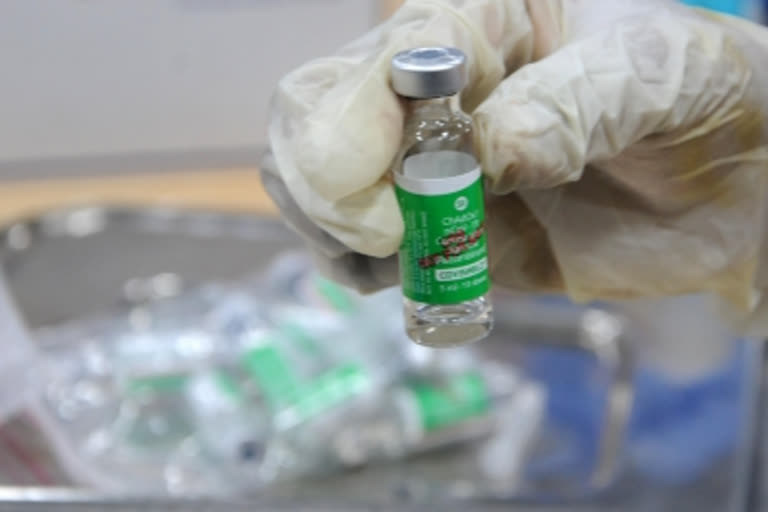The COVID Working Group chaired by Dr. N.K. Arora, on Thursday, recommended an extension of the gap between two doses of Covishield vaccine to 12-16 weeks. The Union Ministry of Health and Family Welfare has also accepted this recommendation.
"It's unlikely to have a negative impact on the vaccine efficacy. As the immune memory developed by the first dose of vaccine would likely remain for a prolonged duration," Dr. Dipu T S, Associate Professor, Department of Internal Medicine, Amrita Hospital, Kochi, told IANS.
The Serum Institute of India-manufactured vaccine, developed by Astra-Zeneca and the University of Oxford, was initially to be administered 4-6 weeks apart.
However, in April this year, the Ministry of Health and Family Welfare, working on the recommendations of the National Technical Advisory Group on Immunisation and the National Expert Group on Vaccine Administration for COVID revised the interval to 6-8 weeks.
Both recommendations that warranted revision of the dosing interval were based on clinical trials conducted by AstraZeneca and Oxford University across the UK, Brazil, and South Africa involving 17,178 participants.
The study, published in the Lancet in March, supports a longer-interval immunization strategy. It showed that Covishield vaccine's efficacy was significantly higher at 81.3 percent after two standard doses are given at an interval of 12 weeks or longer, compared with 55.1 percent when given less than 6 weeks apart."
The study, led by an international team of researchers, also claimed that antibodies were over "two-fold higher" in those people who received the second dose after a 12-week period, compared to those who took it under six weeks after receiving the first dose.
"So, a policy to vaccinate at three months does not compromise the vaccine efficacy, but may make it better," Dr. Praveen Gupta, Director, Neurology, Fortis Memorial Research Institute, Gurugram, told IANS.
"As the second dose is just a booster dose, in the body it will augment the pre-existing antibody response that happened as a consequence to the first dose of the vaccine. Hence the antibody against COVID will go up," Dipu added. There could be mild adverse events like flu-like illness, but no major adverse events are expected as it is just enhancing the pre-existing immune response, he added.
Also Read: COVID-19 Second Wave: Post-Recovery Effects And Preventive Measures For Kids
Besides improving the vaccine efficacy, "this change may also allow a larger number of people to be vaccinated thus giving us optimum public health results creating a larger vaccine net," Gupta said.
"In the current scenario in which India is facing severe vaccine shortage, a single dose could generate immunity for the masses. Considering that protection in the larger public has a bigger impact, the current strategy of increasing the gap between the two doses of the Covishield vaccine, hence, appears to be a reasonable approach," Dipu said.
(IANS)



